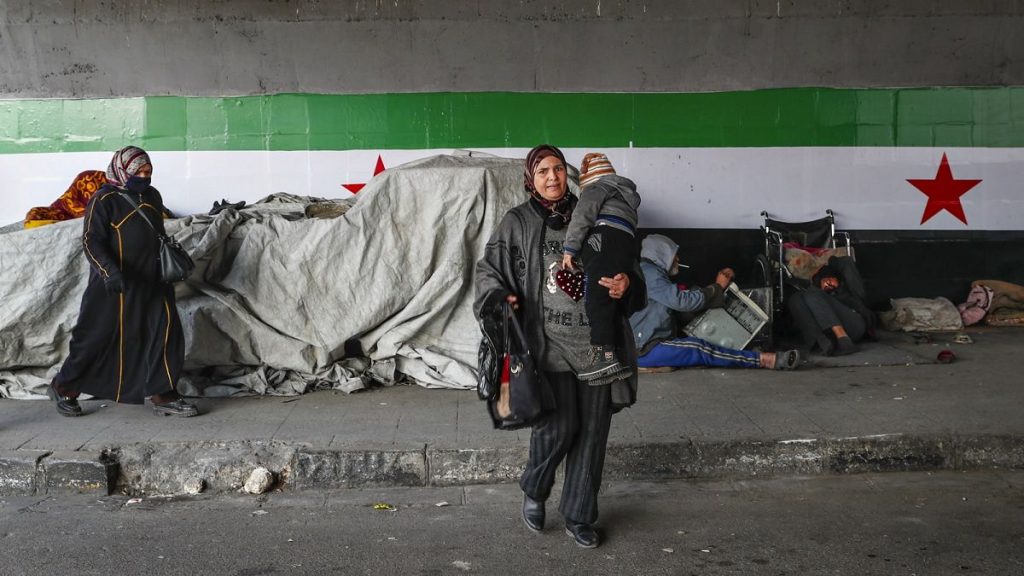The European Union, in a landmark decision, has initiated a cautious easing of its extensive sanctions against Syria, marking a significant shift in its policy towards the war-torn nation. This initial step, endorsed by EU foreign ministers, outlines a roadmap for a temporary suspension of specific sanctions, contingent upon demonstrable progress by the new Syrian authorities in fulfilling a series of commitments related to political transition, human rights, and security. This move comes after the swift overthrow of Bashar al-Assad’s regime by rebel forces led by Hayat Tahrir al-Sham (HTS) in early December, ushering in a new era of uncertainty and opportunity.
The initial focus of the sanctions relief will target sectors crucial for Syria’s reconstruction and economic recovery, including banking, energy, and transport. These sectors are considered vital for stabilizing the country, facilitating the flow of aid, and normalizing financial relations with the EU, which remains Syria’s largest international donor. This targeted approach is part of a “step-by-step” strategy designed to incentivize positive change while maintaining pressure on the new authorities to uphold their promises. The EU’s High Representative, Kaja Kallas, emphasized the conditional nature of the sanctions relief, stating that further easing would be contingent on concrete steps in the right direction. While the political will for easing sanctions appears strong, technical details still need to be finalized before the suspension can take effect.
The sanctions relief represents the most substantial policy shift by the EU towards Syria since the outbreak of the brutal civil war, marked by the Assad regime’s use of chemical weapons against civilians. The HTS leader, Ahmad al-Sharaa, has repeatedly called for the lifting of sanctions, citing their detrimental impact on the Syrian population and the obstruction of humanitarian aid. Humanitarian organizations have echoed these concerns, stressing the urgency of easing restrictions to facilitate the delivery of essential goods and services to those in need.
The EU’s decision to offer sanctions relief is predicated on the fulfillment of several conditions by the new Syrian authorities. These include the protection of all religious and ethnic minorities, the respect for human rights and women’s rights, the disbandment of all rebel forces, the establishment of a free-market economy, and the termination of a military agreement with Russia. Furthermore, the authorities have committed to drafting a new, inclusive constitution through a representative committee, a process expected to take up to three years, followed by new elections, potentially within four years.
While EU member states have generally welcomed these developments, they acknowledge the significant challenges ahead and the potential for the new regime to fall short of its commitments. This cautious optimism underscores the temporary nature of the sanctions suspension and the inclusion of a “snapback” mechanism, allowing the EU to swiftly reinstate restrictions if the situation deteriorates. This cautious yet hopeful approach reflects the delicate balance between encouraging progress and safeguarding against backsliding. The EU is keen to see an inclusive political transition that involves all Syrians, coupled with decisive measures to prevent the resurgence of extremist groups like the Islamic State.
The specifics of the sanctions relief agreement remain confidential and require formalization into legal acts before implementation. Once enacted, the suspension is expected to significantly alter trade and financial relations between the EU and Syria, which have been severely curtailed since the beginning of the conflict. However, sanctions on weapons, surveillance equipment, chemicals, and dual-use technology will remain in place due to the ongoing volatility within the country and the risk of renewed sectarian violence. The existing blacklist of individuals and entities associated with the Assad regime will also remain unchanged, as will the designation of HTS as a terrorist organization, based on a UN decision adopted by the EU. This selective approach reflects the EU’s commitment to supporting positive change in Syria while mitigating potential risks.














